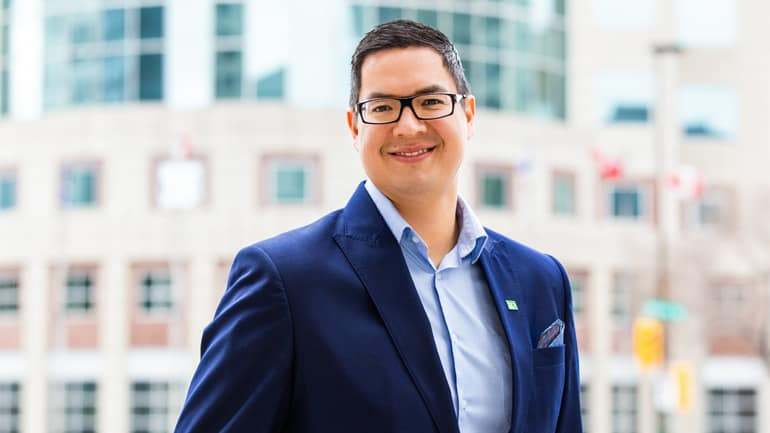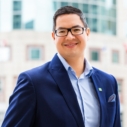By James Baxter
TD Branch Manager, Winnipeg, Manitoba
At a recent awards gala celebrating the achievements of Indigenous Canadians in the arts, business and various other industries, an executive I work with at TD Bank Group leaned over to ask me a question that took me by surprise.
Because TD was sponsoring the gala, my colleague and I shared a table. In between award categories, my colleague leaned over and said he wanted my opinion on whether or not I agreed that there are more Indigenous people at the bank than the number of Indigenous people who choose to self-disclose this in our yearly Employment Equity Survey.
Immediately, I replied 'yes,' as I believed this was true for a few reasons. After talking with him about this, his question stayed with me for the rest of the evening. Our conversation also forced me to think about my early days with the bank when I joined in 2001, and to reflect on my own self-disclosure journey and why I never used to complete the voluntary survey. It also made me think about what changed for me over the years to eventually start disclosing that I am full status Cree from the Nisichawayasihk Cree Nation in northern Manitoba.
Proud of my heritage, yet reluctant to disclose it
Because the bank is Federally regulated, it's required under The Employment Equity Act to gather information on Indigenous people along with women, visible minorities and people with disabilities. TD has also made the decision to include LGBTQ2+ in our Employment Equity survey so those who identify as a member of the community can self-disclose as well. Questions are also asked in our employee feedback survey.
READ: A successful Indigenous recruitment strategy is about people, not numbers
Taken together, these non-obligatory surveys are used to create more proactive employment practices that increase the representation of people from these communities regarding employment opportunities. But I also knew that the surveys are driven by a desire for the business to really understand its workforce, to create a workplace that is reflective and supportive of the communities it services, and to make employees feel like they could be their authentic self at work. And yet I still had concerns and omitted the diversity and inclusion section.
First among these was a conscious bias that I would be perceived by colleagues as having received a promotion because of a quota. I was proud of my heritage, but seeing this play out in society regarding women on boards and other communities kept this concern alive for years. Psychologically, I also didn’t want to deal with any anxiety about the quality of my work not being the sole reason that I would be viewed as the best individual for a promotion.
The internal struggle over 'checking the box'
But something changed over time. Finally in 2014, when confronted with whether or not to 'check the box' I used to avoid, or to voluntarily provide details on my ethnicity, I started doing so. That year, I also added that I am full status Indigenous. Eventually, the desire to provide an accurate representation of myself within the business had grown stronger than my worries, and I suspect that this came about as I established myself more at work after beginning to manage people and gained more confidence in my abilities. As this happened, I became less worried about how I was maybe viewed by colleagues.
An open culture and a change of heart
I'm glad for my change of heart. Having been exposed for some time now to TD's open company culture and a sincere effort to base it on inclusivity also helped me decide that I wanted to use my experiences, knowledge and heritage as a platform to become more involved in my community. Because of this, I'm now connected to our Indigenous Circle (a group of TD employees who share news and information that is relevant to our community).
In 2017, I also signed up to act as a mentor to Indigenous youth via the Rivers to Success Indspire Mentorship Program. As a mentor, I've been working with post-secondary students who are interested in a career in banking and meeting with them to answer questions and help them see opportunities they may have not known were theirs to take. It's been so rewarding to provide a hand up to Indigenous Canadian youth in this way. By acting as a sounding board to my mentee as we talk about their thoughts, questions and challenges in potentially starting their own business, I've also gained the value of a different perspective and feel good about giving someone support through this relationship.
Going back to that evening's conversation, I told my colleague that I understood why an individual may not feel comfortable disclosing that they are Indigenous, or a visible minority or part of another community for several personal reasons (including the few I've listed earlier). But I also shared that I'm glad to do so now.
It may have taken years, but without me having shifted on this I couldn't feel as good today about representing myself accurately at work, or have become aware of the resources TD offers in connecting me with opportunities to give back to my community so that someday others starting their careers don't hesitate taking up their legitimate space.

